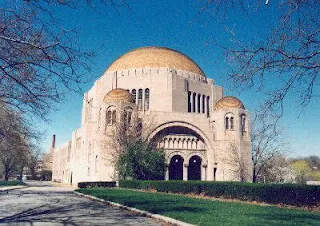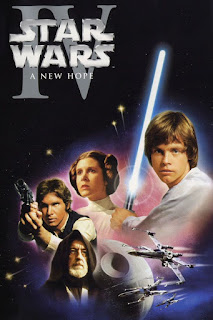Silver's Temple
 I sang in four Synogogues in Cleveland, before moving to Washington. My first "temple job" was, strangely enough, the place of worship of my mother's family. Mom went to temple with her Grandmother, sitting in a pew next to her grandma, listening to Rabbi Abba Hillel Silver, a leading light of the Reform movement in America and a leading proponent of Zionism.
I sang in four Synogogues in Cleveland, before moving to Washington. My first "temple job" was, strangely enough, the place of worship of my mother's family. Mom went to temple with her Grandmother, sitting in a pew next to her grandma, listening to Rabbi Abba Hillel Silver, a leading light of the Reform movement in America and a leading proponent of Zionism.How I came to sing at Silver's was this: My voice teacher, Mel Hakola, was "cantorial soloist" at Silver's. Mel was Finnish, but he'd been the cantorial soloist (a cantor substitute) for many years. Mel said they needed an alto, and I got the job. It was an experience never to be forgotten, singing in Hebrew, a language I didn't know, inspite of my ancestry, hidden behind and above the Bema, and hidden from the congregation. My voice teacher sang the Sh'ma, and all the other important service music. We sang responses. A good Jewish service is much more participatory for the choir than a Christian service. Think Greek chorus. They respond, reinforce, repeat what the cantor sings. It is invigorating and meaningful, especially when someone translates for you!
That year, on Yom Kippur, there was a stir in the choir, and news was passed from person to person. Syria and Egypt had attacked Israel on this holiest of holy days, the Day of Atonement. Israeli existence was threatened. The service took on more of a somber tone then was usual for Yom Kippur. We sang from deep within us.
I sang over 30 years worth of Yom Kippur services in my career, but Yom Kippur 1973 has a permanent place in my mind. I can still see Mel and the organist huddled in whispered conversation while the Rabbi spoke. The congregation was told, and prayers were said.



Comments